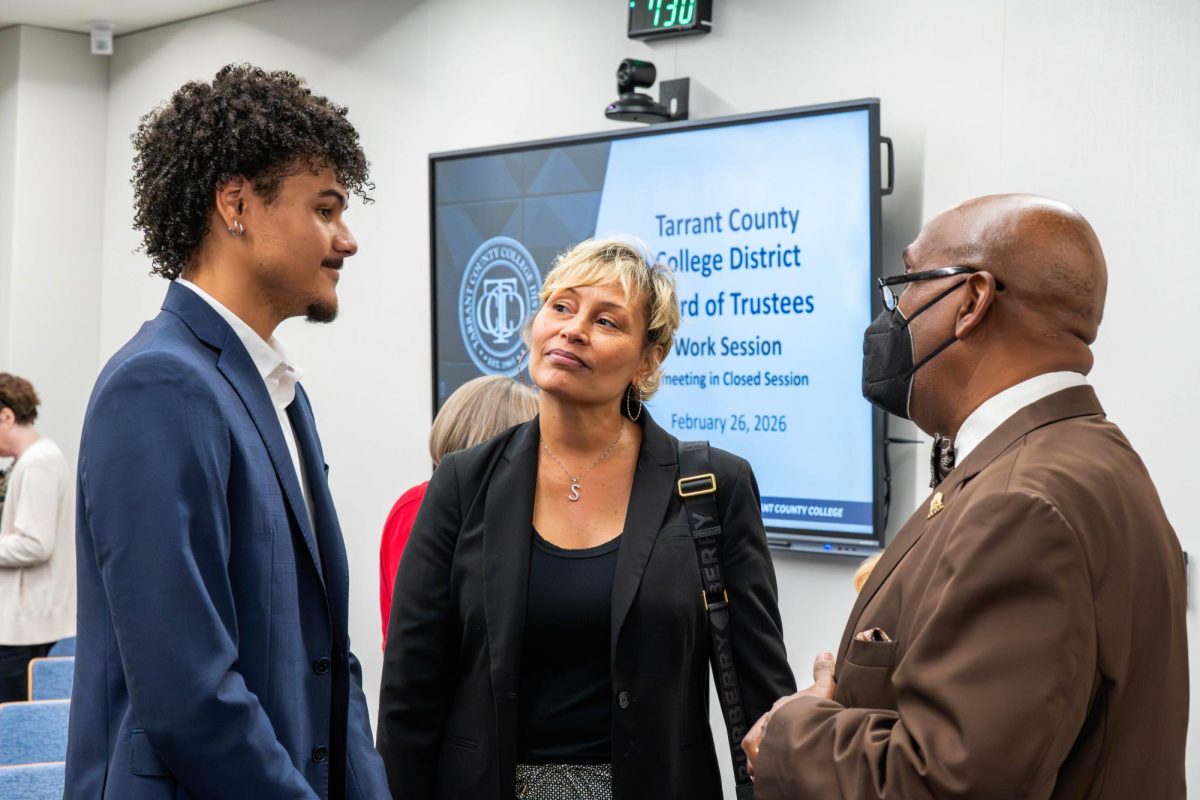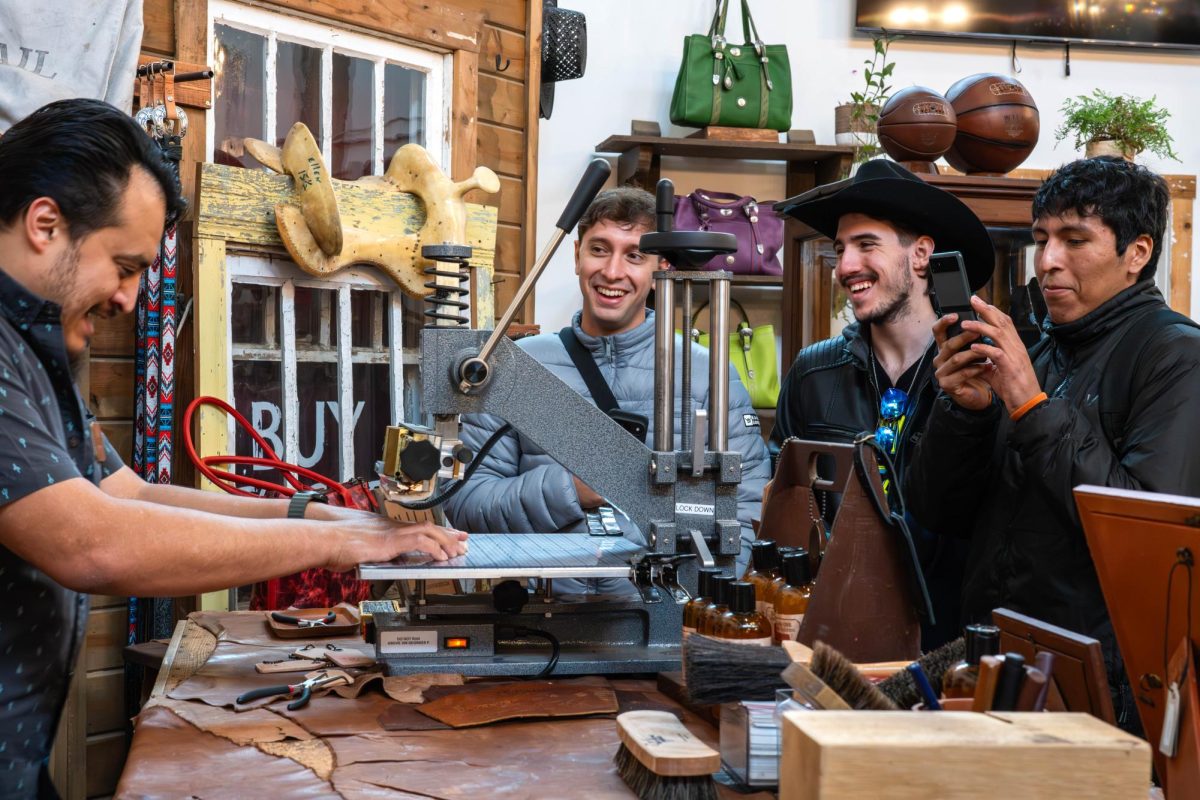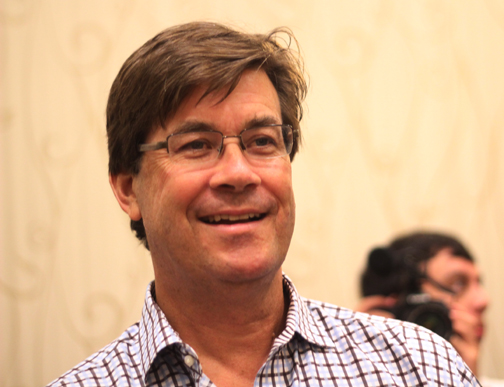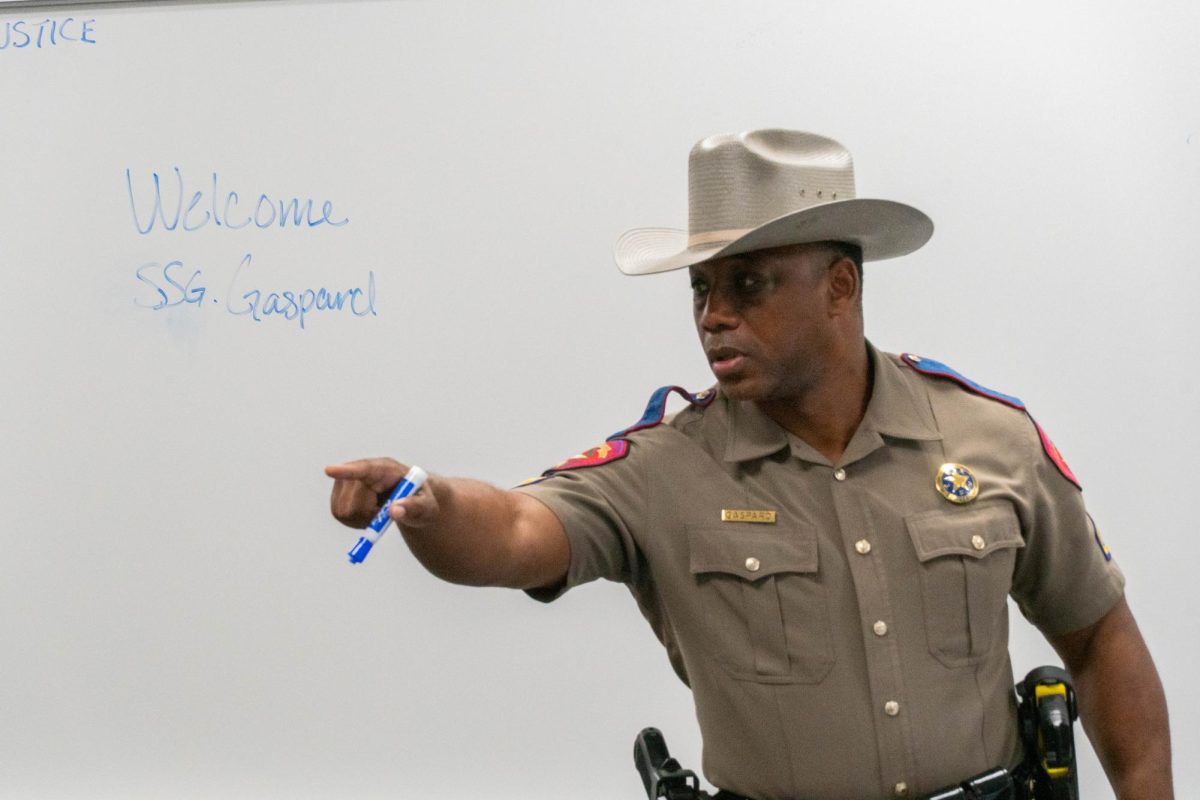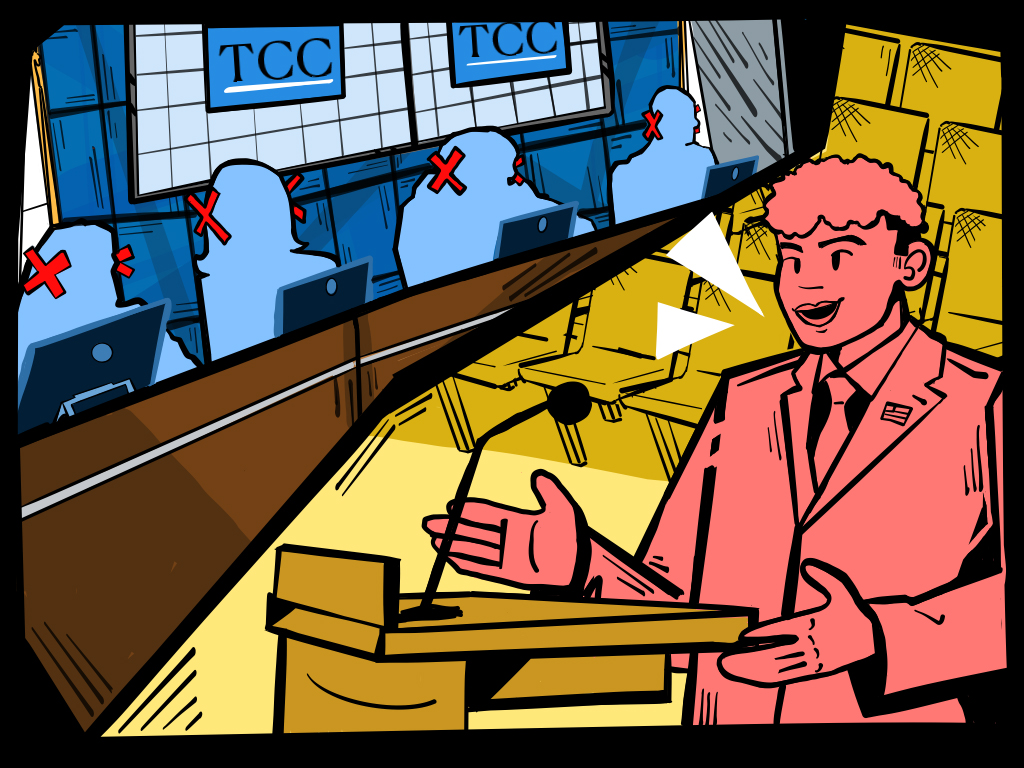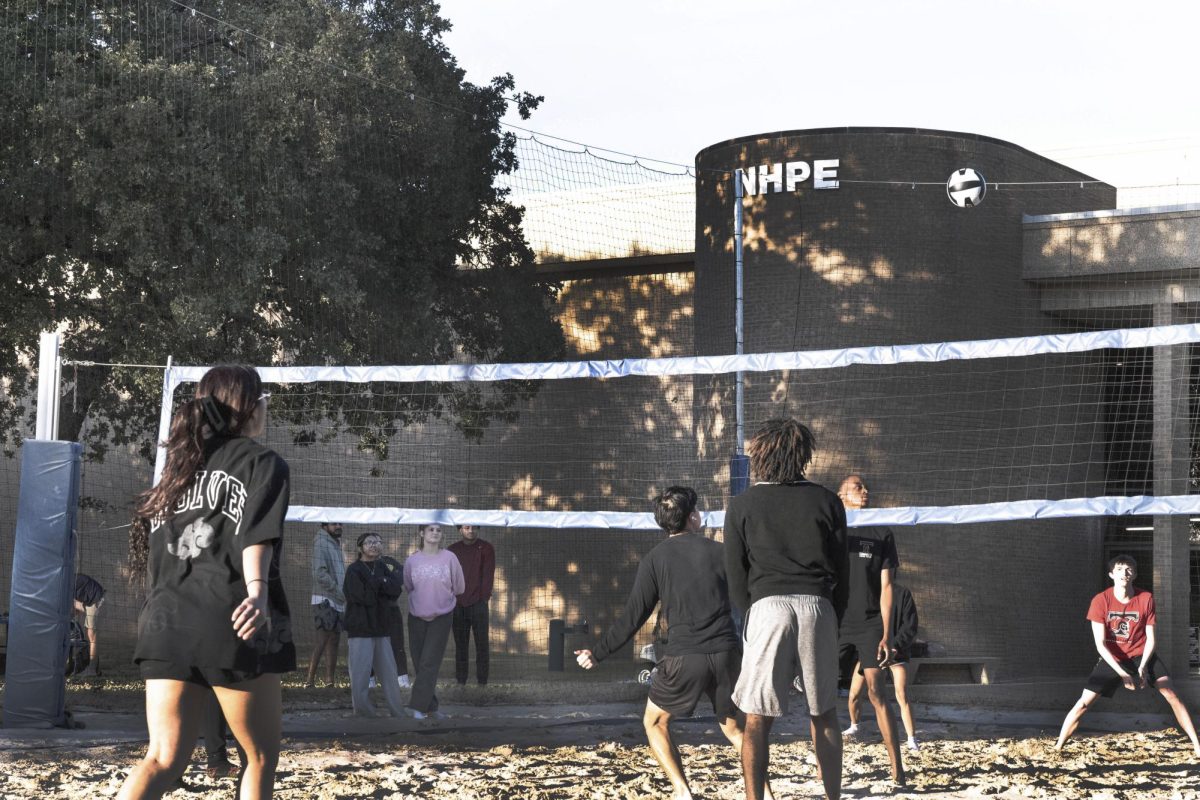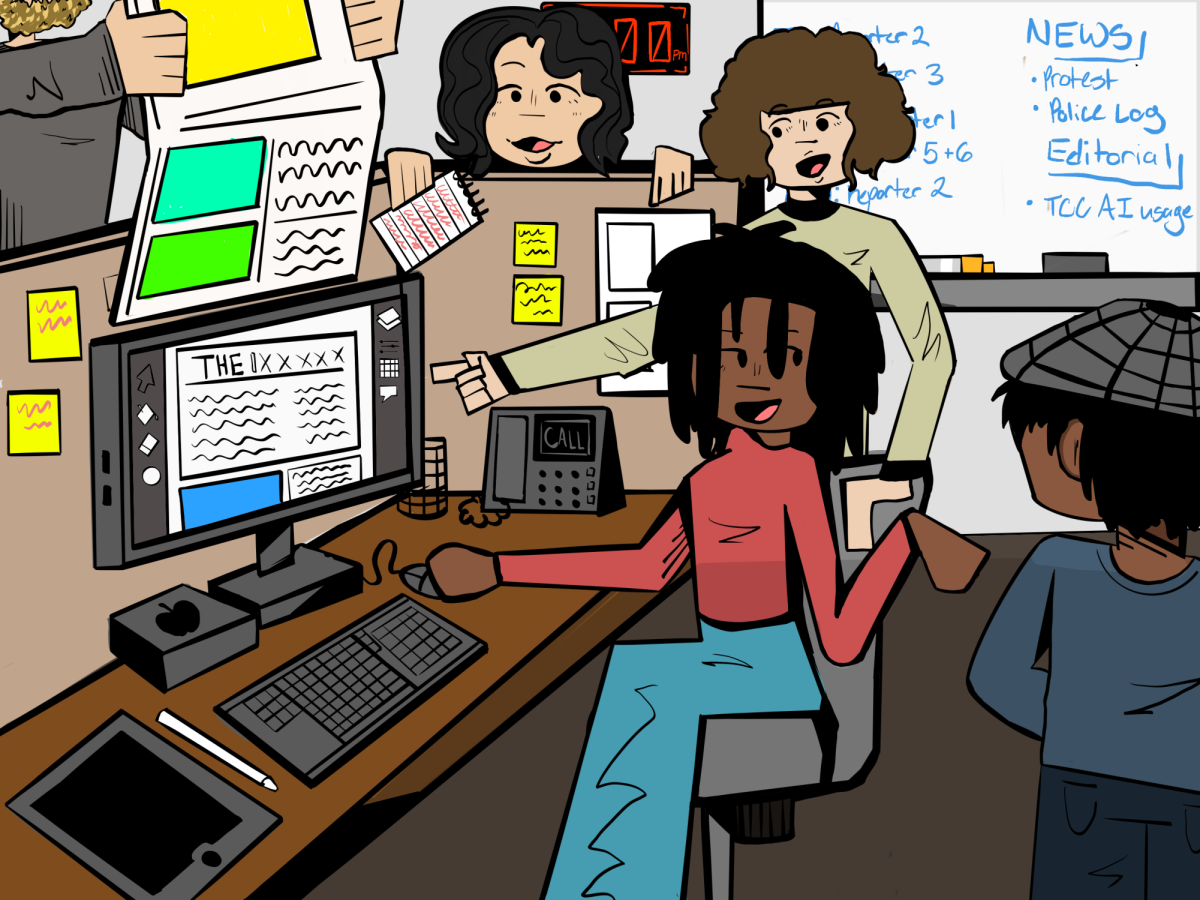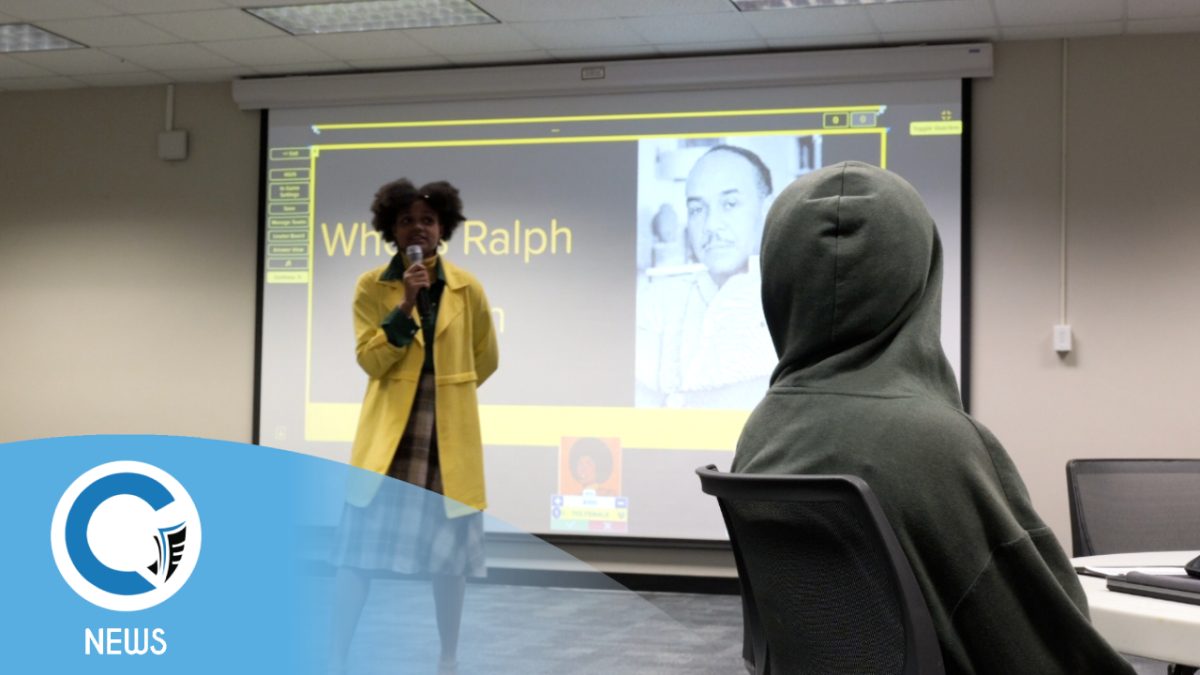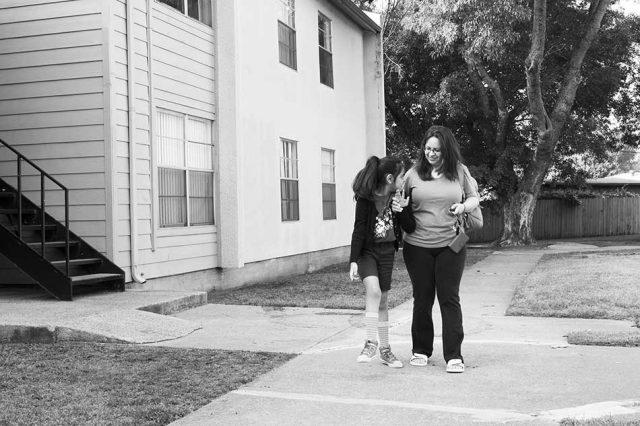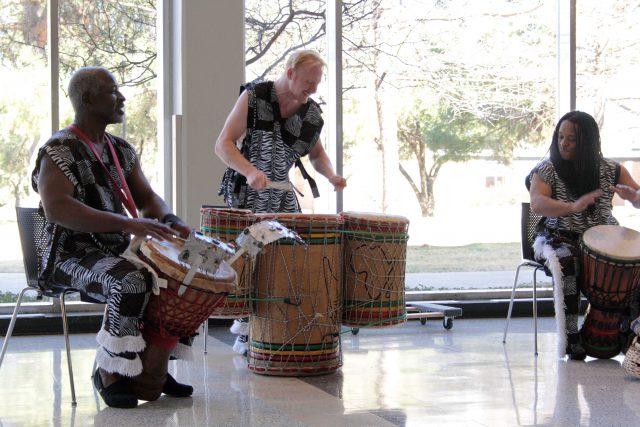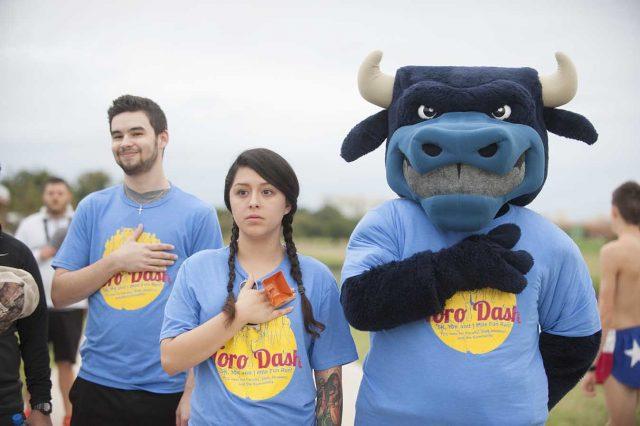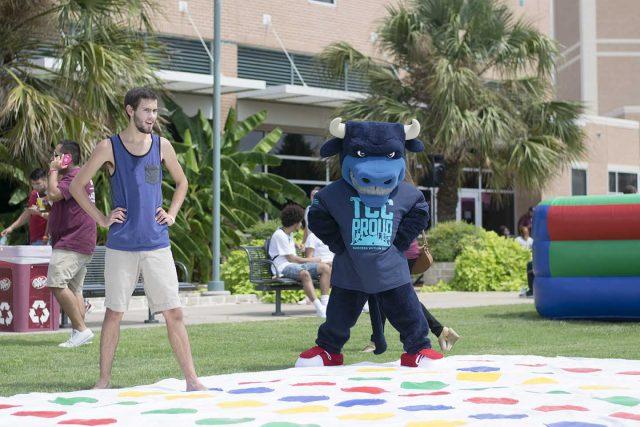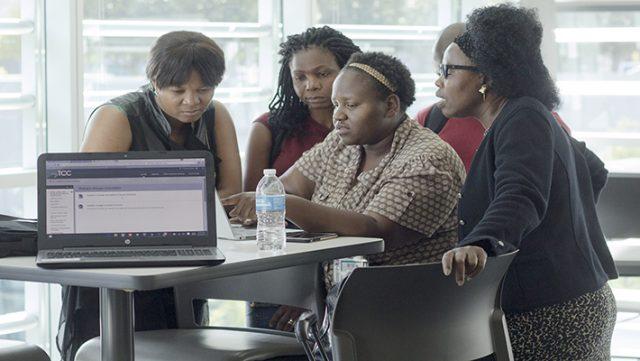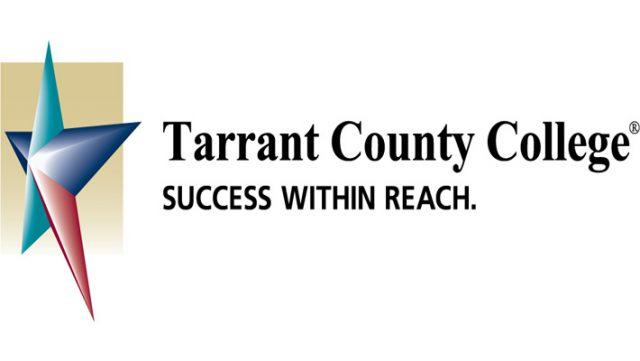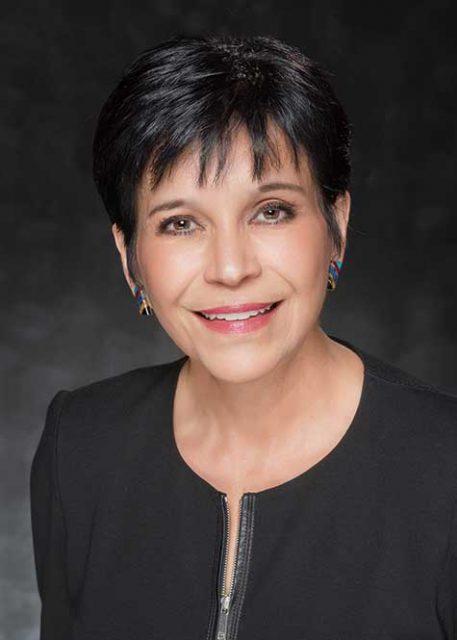By Hannah Lathen/ managing editor
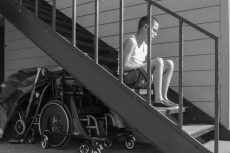
Photos by Sondra Falcon/The Collegian
It is no small feat for a working mother to go to school and take classes.
Sondra Falcon is one of these students. She is currently a pharmacy technician and a part-time NE student while being a mother and wife at home.
But she also lives with the knowledge that her teenage children might not live past their 20s.
They suffer from ataxia-telangiectasia, an extremely rare neurodegenerative disorder. In spite of this, Falcon strives to maintain a positive attitude and makes happiness a priority.
“There might be stress but never sadness,” she said.
Falcon’s two children are Hector, 16, and Saylah, 13. Their diagnosis came in 2013, but the road leading there was lengthy and filled with confusion and misdiagnoses.
Hector was born a completely normal baby, Falcon said, and it wasn’t until he started walking that he showed problems with balance.
“The doctors just kind of brushed it off and said, ‘Oh, he is just learning. He will grow out of it,’” she said.
At his 18-month checkup, a doctor noticed Hector’s hands were clenched. Thinking Hector had a seizure disorder, the doctor sent him to a neurologist.
“The neurologist initially diagnosed him right away with something called neurofibromatosis, which is tumors,” she said. “You will grow tumors under your skin. You can get them in your brain, and it’s very scary. It’s a rare disease also.”
Further testing proved that to not be the case, so they went to a geneticist.
“They couldn’t find anything, so they basically told us that he had cerebral palsy, and that’s what he was diagnosed with,” she said.
After Saylah was born, she too began showing signs that something was wrong.
“She wasn’t able to sit up straight, and she would lean, and she was kind of always all over the place,” she said. “So, we went back to the geneticist, and they said, ‘OK, it is something genetic, but we don’t know what it is.’”
After several tests, doctors still could not find the problem. It wasn’t until nine years later that Hector and Saylah were seen by a neurologist that specialized in unsolvable cases. He eventually ordered a genome sequencing that looked at every piece of their DNA.
That’s how the children were officially diagnosed with ataxia-telangiectasia. After many years of researching Hector and Saylah’s symptoms, Falcon was not surprised by the diagnosis, but it was still overwhelming.
“Everything that came with it, it was devastating,” she said. “Their chances of developing cancer are about a thousand times higher than a regular child — or anybody — and they have issues with their immune system.”
A-T is an immunodeficient disease, meaning a person’s immune system is not fully functioning in contrast to an autoimmune disease where the immune system is overactive.
“We found out my daughter basically had no immune system so that is why she was always sick,” she said. “My son’s immune system worked about halfway.”
The gene for A-T is recessive, so both parents have to be a carrier.
“I carry the defective gene, and my husband carries the defective gene. So us carrying a child, there’s a one-in-four chance that that child would have it,” she said. “In our case, it just so happens that both of our kids ended up having it.”
Today, Falcon must make sure Saylah takes her medicine every evening and morning, and both children receive antibody infusions every other week in their stomachs.
“They both use wheelchairs for longer distances,” she said. “Hector still uses a walker at school, and Saylah uses her wheelchair. At home, they scoot on their booties.”
Falcon’s sister, Eva Leon, said Falcon has a lot of balls in the air as far as everything she has to get done in the day.
“She works full time, she goes to school to better herself, to better her family,” she said. “It is a sacrifice she is willing to make because she loves her children and she loves her family.”
Falcon, a photography student who also contributes to The Collegian, takes family portraits, but she is also working on a documentary photo project about children with A-T focused more on her children. She wants to travel the country to meet other children with A-T and eventually create a book to bring awareness to the disease.
“Once it is finished, I hopefully will sell it and all of the proceeds will go toward the A-T Children’s Project to help with research,” she said.
Falcon uses the money she makes from doing photo shoots to fund the travel to meet other families. This past January, she met with two other families in Atlanta.
Rosita Oliveira and Falcon have worked together at Walgreens for around 15 years, and she said Falcon is like Superwoman.
“I do know that she had her ups and downs, but she’s always willing,” Oliveira said. “Even though I know there’s scary moments for her where she wasn’t sure, she took risks and she did what she had to do for her kids,” she said. “Her and her husband, they make it work.”
NE student and friend Jen Vasilio said Falcon remains a positive, happy person.
“She never feels bad for herself. She never feels bad for her kids. She just keeps moving forward,” she said. “No matter the difficult times that they have, she doesn’t let that bother them.”
Falcon sees her children as inspiring.
“I walk further, or I’ll park further away or take the stairs just because they can’t,” she said. “If my kids can go through this, I can do anything.”
Her children’s disease taught her how important it is to live life and be happy, she says. However, staying positive is not without effort.
“There are always things in the back of your mind,” she said. “There’s things like, my son is 16, and right now, he should be learning how to drive. That’s never going to happen, but you can’t focus on that because all that’s going to do is depress you. You have to focus on what he can do and make him the best person he is able to be with what he can do.”
She said she has a great support system in her friends and family but more specifically her husband of 18 years, Hector Sr.
“He is just the best father that anyone could ask for,” she said. “He’s the funny one. I am the one who keeps track of doctors’ appointments and this and that, and he’s the goofball making them laugh and making sure they are happy. We work good as a team.”
Falcon’s message to other parents going through a child’s diagnosis is to be patient.
“Just live day to day and appreciate the little things.”


